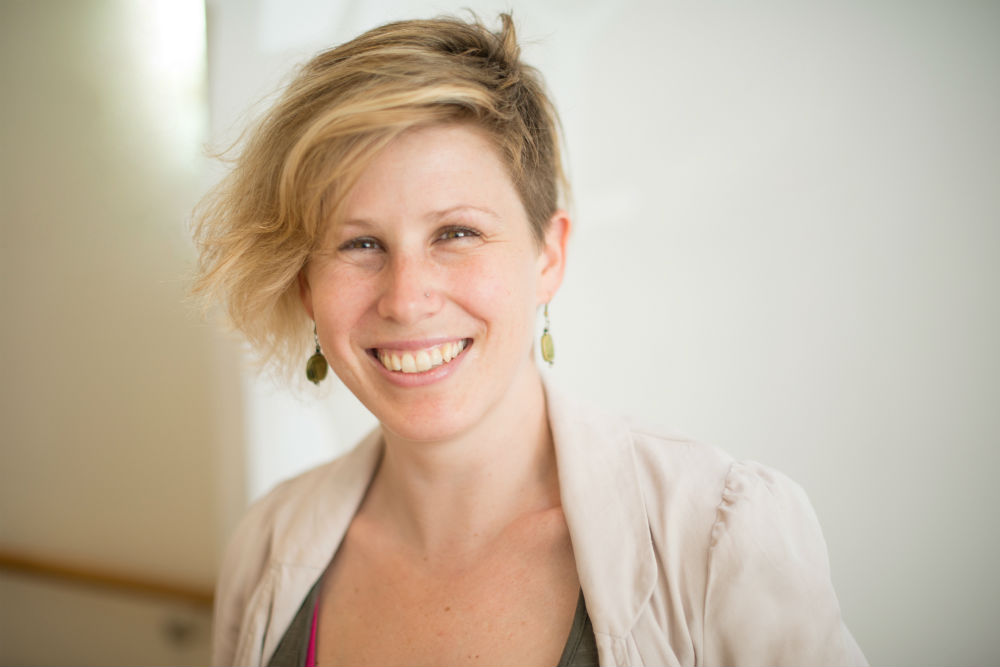
Caroline Criado Perez is on stage with her small dog Poppy, about to discuss Invisible Women: Exposing Data Bias in a World Designed for Men.
She is introduced by Sally Magnusson as the engineer behind the campaign that got Jane Austen on a bank note and the author of a “Truly eye opening book”.
Judging by the rapturous applause from the audience, they would tend to agree.
Criado Perez’s book is “The story of what happens when you forget to account for half of humanity” and judging by the packed-out auditorium, it’s a story that has resonated with many.
Criado Perez’s book is: “Essentially about the fact that the vast majority of information we have is based on male bodies and typical male lifestyle patterns,” – Otherwise known as the gender data gap.
Over the course of the hour, the talk touches on several aspects of life where we can see the impact of this gap play out.
The consequences range from the lighthearted (ever wondered why the queue for women’s toilets are so much longer?) to the lethal – women are 17% more likely to die in a car crash as crash test dummies are based on male dimensions.
The reason for this, according to Criado Perez, is: “Women are treated as outliers when we’re not, we make up half the world.”
To illustrate this, she describes how in medicine, female symptoms of a heart attack – which differ to male symptoms – are treated as “atypical”, often with fatal results.
Speaking to a predominantly female crowd, there was a sense that Criado Perez was preaching to the choir.
Her work hasn’t always been so warmly welcomed however. In the wake of her campaign to have Austen recognised on £5 notes she was sent threats death and rape threats.
“I was terrified, it was relentless. I had never experienced anything like that before. People were trying to find my address […] I felt hunted, it was terrifying.” She explains.
The motivation behind such vitriol might to many seem to defy logic, but Criado Perez has some thoughts on the matter:
“If you’re a man growing up, being told that the public sphere is yours to inherit, and then a woman comes along and is saying, hang on a minute there’s this other part of humanity that should be represented, the men who were sending me these threats, the only way I think you can explain it is that they felt deeply threatened.”
As the talk progresses Criado Perez’s examples of data bias veer from the exasperating to the frankly overwhelming.
It’s tempting to be despondent, but Criado Perez comes armed with solutions.
“We don’t have enough female perspectives that are designing things. Diversity is an integral part of the design process […] It’s actually about being able to create products that actually serve the people we’re trying to serve.” She explains.
After all as Criado Perez asserts: “Data isn’t just about numbers and statistics, it’s also about perspectives.”
Her main recommendation however is one that everyone, regardless of gender, can adopt:
“Stop allowing the male to occupy the gender neutral spot. Because that’s actually what is at the heart of all of this.”

